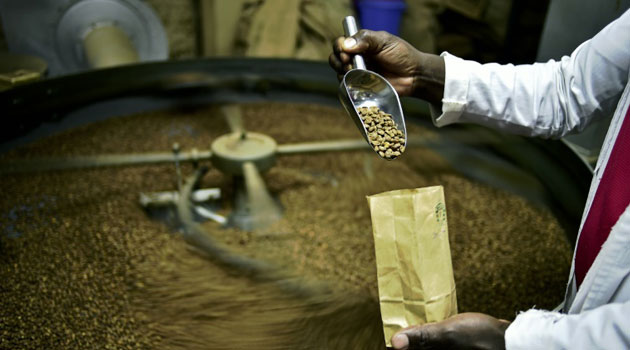NAIROBI, Kenya, Jul 3 – The government has set aside Sh2.4 billion in the 2016/17 year to cater for the remaining debts in coffee societies.
Industrialisation Cabinet Secretary Adan Mohammed says this is addition to the Sh4 billion that has been released in the past.
“It is my expectation that farmers whose debts have been waived will take advantage of this gesture to increase coffee production and therefore incomes,” Mohammed said.
He was speaking during the 94th International Co-operative Day on Saturday.
The government started debt waivers in 2003 to give the struggling coffee societies a new lease of life after a lean period in the 1990s.
The debt waiver is meant to help the coffee societies put their balance sheets in order.
The government appointed a task force to look in the problems afflicting the coffee sub sector and recommend possible measures to address them.
The Task Force report has already been submitted to the government and implementation mechanisms are being worked on by the relevant State Departments.
READ: Coffee sector faces revival after Task Force recommendations
The country produces between 40,000 to 50,000 tonnes of coffee per year, down from 130,000 per year produced in 1987 and 1988.
A member of a taskforce appointed by President Uhuru Kenyatta to review the entire coffee value chain blamed the liberalization of the coffee business by the International Monetary Fund.
READ: Liberalisation to blame for fall of Kenya’s coffee sub-sector
Liberalisation meant coffee growers could no longer regulate their own produce following the introduction of marketing agents and coffee millers who ultimately crippled the sub-sector.



































